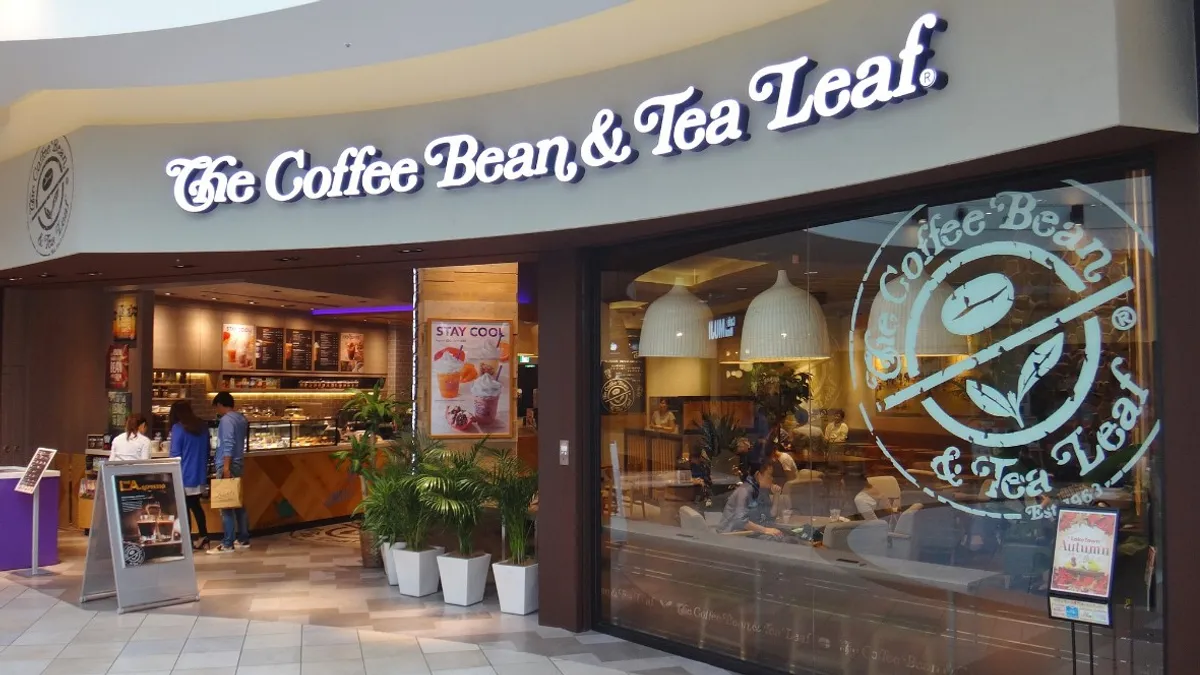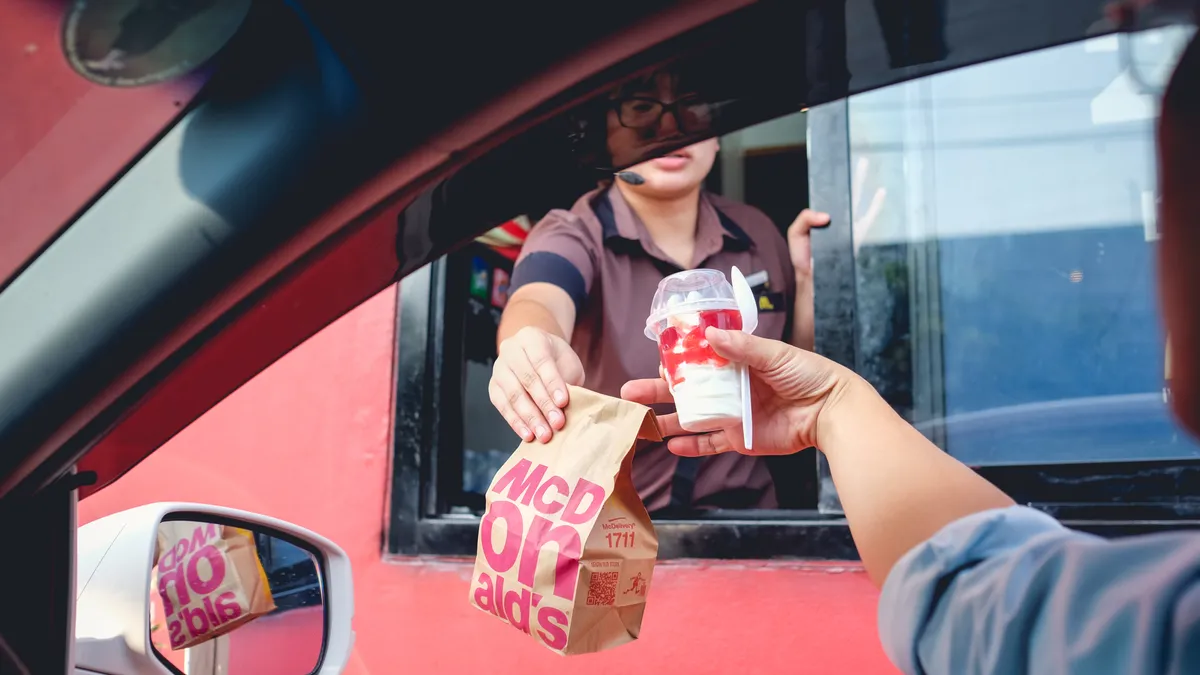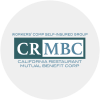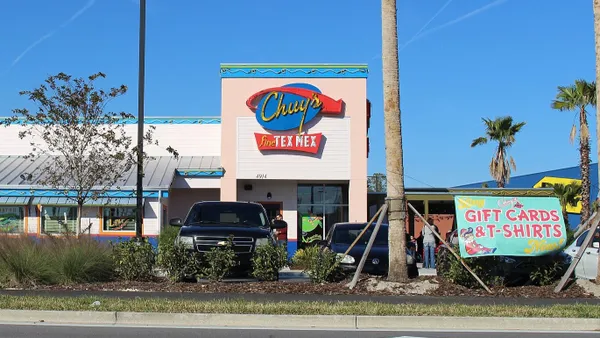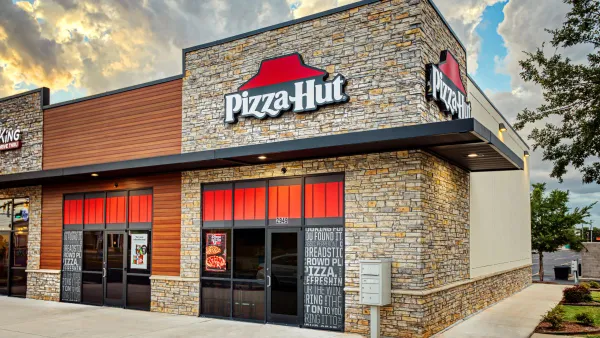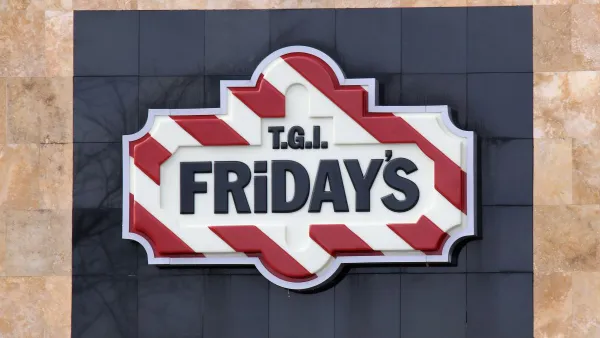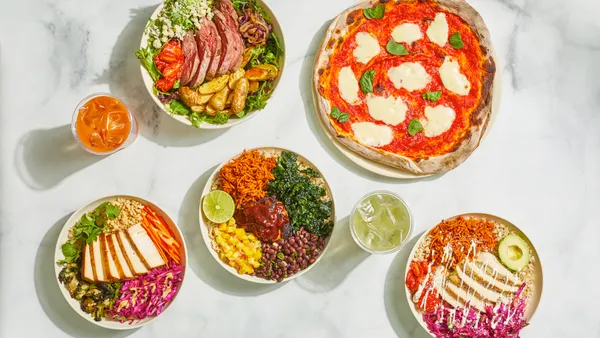Dive Brief:
- Philippines-based Jollibee Foods Corp. acquired Los Angeles-based Coffee Bean and Tea Leaf for $350 million, according to Bloomberg.
- This deal marks Jollibee's largest acquisition to date and adds to its growing portfolio that also includes Smashburger, which it acquired in 2018.
- Jollibee will invest $100 million to gain an 80% position with a Singapore venture that was set up with Vietnamese partners to purchase the chain. The rest of the funds will be provided in the form of advances.
Dive Insight:
Jollibee, which is the 24th largest fast food chain in the world, has been transparent about its goals of becoming one of the top five restaurant companies in the world and this acquisition will bring it a step closer. Since opening two ice cream parlors in the Philippines in the 1970s, Jollibee Foods has grown to 14 brands with 4,300 stores in 20 countries. Coffee Bean will add 1,200 stores in the U.S., Southeast Asia and the Middle East to that total.
Although Coffee Bean generated a net loss of $21 million last year, the brand will bolster Jollibee's global sales by 14% and its global footprint by more than 25%, according to Bloomberg, which made it an attractive acquisition to help the company achieve its goal.
Jollibee's current portfolio includes fried chicken, spaghetti and burgers. The addition of a coffee brand will diversify its offerings, enabling it to gain new customers and market share in the same way QSR giants Yum Brands (KFC, Taco Bell, Pizza Hut) and Restaurant Brands International (Burger King, Tim Hortons, Popeyes) have done.
The acquisition also puts Jollibee in direct competition with Starbucks and JAB Holdings, which owns Panera, Peet's Coffee and Caribou Coffee. Like Starbucks, Coffee Bean is eyeing aggressive growth in the China market, where Luckin Coffee has also firmly planted a flag. This makes the market ripe for intensified coffee competition as consumption of the beverage grows there. According to Coffee Business Intelligence, the growth rate of China's coffee consumption is about 20%.
In addition to the rising coffee demand, Jollibee is also taking advantage of an active M&A space, expected to remain high this year. Multinational holdings companies and acquisitions are becoming more common in the restaurant space as the domestic market saturates and diversification becomes one of the few paths left to grow. Jollibee, which struggled with expanding into the U.S. organically, is also using acquisitions to expand its American footprint.
Some investors are skeptical about the deal, however. Shares fell 8% upon the news, with concerns over Coffee Bean's challenging 2018, as well as Smashburger yet to contribute positively to the company's earnings, according to Bloomberg. But if any company can help turn around Coffee Bean, it's Jollibee. The company grew sales by 14% from 2016 to 2017, while profits were up 17% last year.


